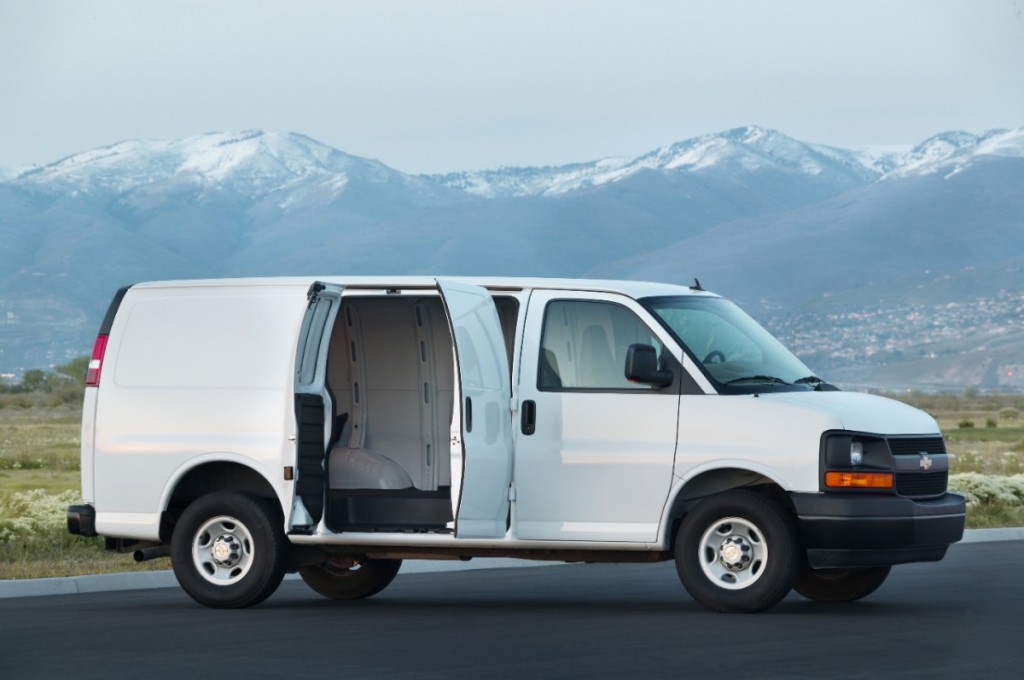Operators of commercial vans have fewer options for fuel efficiency than individual buyers of passenger cars, but luckily, there's always the aftermarket.
Coca-Cola has recently been operating a fleet of new Chevrolet Express 3500 vans upfitted with hybrid kits from XL Hybrids--and says it's found them satisfactory so far.
DON'T MISS: NYC 'Manhole Covers' To Hide Resonance Chargers For Electric Cars
After starting with 103 hybrid vans at the beginning of this year, Coke plans to add another 140 to its fleet by early 2015, according to AutomotiveFleet.com (via ChargedEVs).
The vans are assigned to service technicians who make repair calls for the soft-drink company's vending and fountain machines.

2014 Chevrolet Express 2500 Cargo Van
The conversion includes a lithium-ion battery pack supplied by Johnson Controls, mounted in the rear of the vehicle.
The battery gets energy from regenerative braking and powers an electric motor.
RELATED: Via Motors Range-Extended Electric Cargo Van Completes Crash Testing
That motor supplements the gasoline engine, enough to provide 20 percent more range per tank of gas, according to XL Hybrids, and a corresponding 20-percent reduction of carbon emissions.
The company boasts that its kit can be installed in only around six hours.
It is suitable for new Chevrolet Express and GMC Savana vans and can be retrofitted to existing models of those vehicles from model years 2010 through 2013. It can also be installed in 2009 to 2013 Ford E-Series vans or cutaway chassis.

2014 GMC Savana 2500 Cargo Van
XL Hybrids believes that emphasizing simplicity and convenience will win over fleet buyers who want to cut their fuel consumption but are leery of advanced technology.
Coca-Cola noted that one of the biggest perks of the system is its ability to keep operating if any of the hybrid components fail, simply by switching to a "bypass mode."
The conventional hybrid system also eliminates the cost of upgraded infrastructure--such as electric-car charging stations or natural-gas fueling stations--required for plug-in or alternative-fuel vehicles.
That lack of required infrastructure should also prove attractive for fleet operators, the company says, whose main concern is always the bottom line.
_______________________________________________












